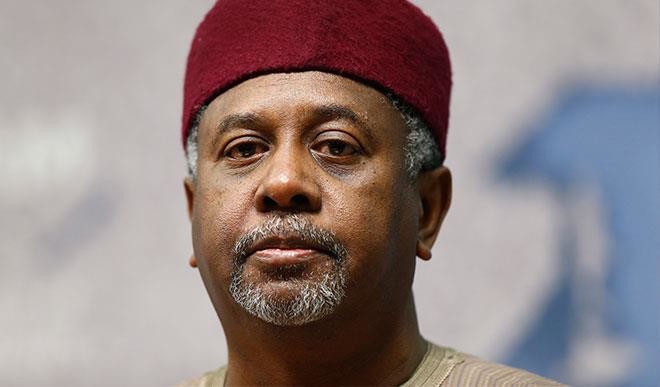A true story worth telling. Some fifteen years or so ago, a Nigerian telecom company applied for a loan from a French bank. The two sides met in Paris to discuss the loan and its terms for repayment. During a break for lunch, the French bank received a call from Lagos advising it not to proceed with the discussion because the frequency allocated to the Nigerian telecom company was encumbered.
When the meeting resumed after lunch, the bank delivered the bad news to the Nigerian business mogul. He tried to shrug it off, assuring the bank that it had no reasons to fear because he would sort out the problem, whatever it was. The chairman of the bank was unimpressed. He said: “Sorry, this negotiation is off for now. You see, if a small magistrate in a remote corner of this country delivers a judgment, it must be obeyed by everyone, including our president. In your country, nobody obeys the courts and nobody respects the rule of law.”
It is sad to see that the disobedience of court orders, especially by the federal government, has become the norm in the country. Sunday Punch issue of July 21 provided ample evidence that the Buhari administration is treating court judgments, and by implication, the judiciary, the third leg on which our form of government and democracy was constructed, with arrogant contempt. It chooses the judgements that are convenient for it to obey and chooses which to ignore. No government has that choice, at least not in a democracy, a form of government that would ring hollow were its scrupulous respect for the judiciary and the rule of law to be in deficit.
We could trace this bad habit on the part of the federal government to the Obasanjo administration, 1999 – 2007. During that period, as our fledgling democracy sought to gain a foothold on the slippery terrain of democratic norms, the president frequently showed his lack of patience for a system of government that, in the kia-kia military tradition, is slow, cumbersome and restrictive. Obasanjo respected the courts more by his indifference to judgements that did not please him or sought to restrict him in accordance with the constitution. This once prompted an exasperated then Chief Justice of Nigeria, Mr Justice Uwais, to say that a government that does not obey court rulings is a bad government. The cap fitted.
We had a respite during the Yar’adua and Jonathan administrations. Both administrations obeyed court orders. Well, at least we did not know of court judgements that those administrations wilfully disobeyed or ignored. Early in his administration, the late President Yar’adua made it a cardinal principle of his administration to promptly obey court rulings to demonstrate his commitment to a government of laws, not of big men.
We have slid back. It aches. The problem is that we had a president and we have a president both of whom are by temperament and inclination, part dictators and part democrats. On any given day, the latter yields place to the former. That should tell you why even with 20 years of democracy under our belt, we are yet to put behind us the era of arbitrariness and the impunity by heads of governments and their acolytes. Governments. at the three tiers ought to be the epitome of what is right for our democracy and our country. It is painful, if, at this stage, a Nigerian government still needs to be reminded that the judiciary and court judgements make the rule of law possible and thereby strengthen democracy.
The Punch report detailed several cases in which the federal government simply disobeyed the rulings by courts of competent jurisdiction created by an act of parliament in accordance with the constitution. This gives off bad vibes. The judiciary is more than an arbiter in settling disputes or arguments among citizens and between them and their governments. It is even more than a refuge for men and women turned into refugees by their economic, political and social circumstances. The judiciary is the sole protector of all our rights, freedoms and liberties as citizens. The right of the courts to be respected rests firmly on the legal foundation of our government – the constitution. That right cannot be treated lightly, denied or abridged on the advice of personal whims and caprices.
There is a cruel irony here. Buhari stakes his integrity on fighting corruption and putting those he calls treasury looters in jail. He is doing so because those men and women so fingered allegedly broke the law and he wants them to account for their alleged misdeeds in accordance with the laws of the land. If the courts are treated with contempt because they choose to do their constitutional duty in accordance with the law, then something must be missing in the premise of the anti-graft war. I thought you could not try to punish law breakers by breaking the law.
The silver lining in this darkening firmament is that human rights bodies, such as the Socio-Economic Rights and Accountability Project, (SERAP) and the Committee for the Defence of Human Rights, (CDHR), refuse to let the government forget that it is legally and morally bound to respect the courts and that it is not within the powers of the president or his administration to exercise discretionary powers in obeying the courts.
The one case that aroused my interest in The Punch publication is that of Col Sambo Dasuki, former national security adviser to former President Jonathan. He has been detained by the DSS since December 29, 2015, accused of some alleged crimes while in office. It is difficult to ignore the drama starring him and played out in several courts in his struggle to be released on bail. Every court to which he took his case agreed that his alleged offence was bailable and that he should be released on bail. It is the right of an accused under our laws who is not facing charges of a capital offence. But this right has been denied him time and time again.
A couple of weeks ago, the Abuja division of the court of appeal again admitted Dasuki to bail. The appeal court panel led by Mr Justice Tinuade Akomolafe-Wilson, described his continued detention without a valid court order as illegal, unlawful and unconstitutional and awarded N5 million damages against DSS.
Will the man be allowed to go home now? Mum is yet the word. This is not about Dasuki nor is it about his alleged offence. This is about the liberty of a Nigerian citizen under our laws. There are clear constitutional stipulations on how an accused person should be treated. This is not to molly cuddle alleged offenders but more importantly to ensure that no one’s fundamental rights are wilfully abridged for reasons that are either unknown or strange to our laws. The courts are not there merely to punish alleged offenders but to also protect their rights and defend their liberty until these are surrendered to the state through a pronounced guilty verdict.
Dasuki’s continued detention in defiance of the judgments of the federal high courts and the court of appeal is offensive to the rule of law, largely observed in the breach, to be sure, natural justice, the defence of our liberty and freedom against the assumed right of the state to narrow the frontiers of our liberty and freedom. The right of every Nigerian to be fully protected by the Nigerian state is both a legal right and moral right. Every time a Nigerian citizen is caged by the state in exercise of its powers, it diminishes all of us, including our government.
Let Dasuki go now. It is the right and proper thing to do to uphold the sanctity of court judgments and the integrity of the judiciary and give the rest of us hope that we are not in danger of capriciously losing our freedom and liberty as Nigerian citizens.

 Join Daily Trust WhatsApp Community For Quick Access To News and Happenings Around You.
Join Daily Trust WhatsApp Community For Quick Access To News and Happenings Around You.


